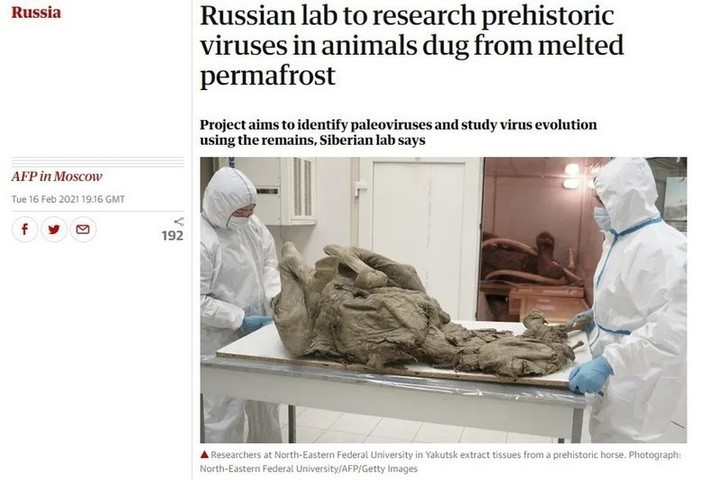The project is aimed at identifying paleoviruses and studying the evolution of viruses from the remains /
–
The Russian state laboratory has announced the beginning of a study of prehistoric viruses by analyzing animal remains recovered from the melted permafrost.
The Siberian Laboratory said the project aims to identify paleoviruses and conduct cutting-edge research on the evolution of viruses.
The study, in collaboration with Northeastern Federal University in Yakutsk, began with an analysis of tissues recovered from a prehistoric horse believed to be at least 4,500 years old.
Experts indicated that the remains were discovered in 2009 in Yakutia.
The researchers said that the remains of mammoths, moose, dogs, partridges, rodents, hares and other prehistoric animals will be studied in the future.
Maxim Cheprasov, head of a laboratory at the Mammoth Museum at Northeastern Federal University, said in a press release that the discovered animals had already been the subject of bacterial research.
He said, “This is the first time we’re doing research on paleoviruses.” Writes about this The Guardian.
The Siberian Laboratory is one of two repositories of the smallpox virus in the world.
Scientists say the Arctic is heating up twice as fast as other regions of the Earth, endangering wildlife and also releasing CO 2 stored in the melting permafrost. Ice can also free viruses from frozen ancient animals.
– .


